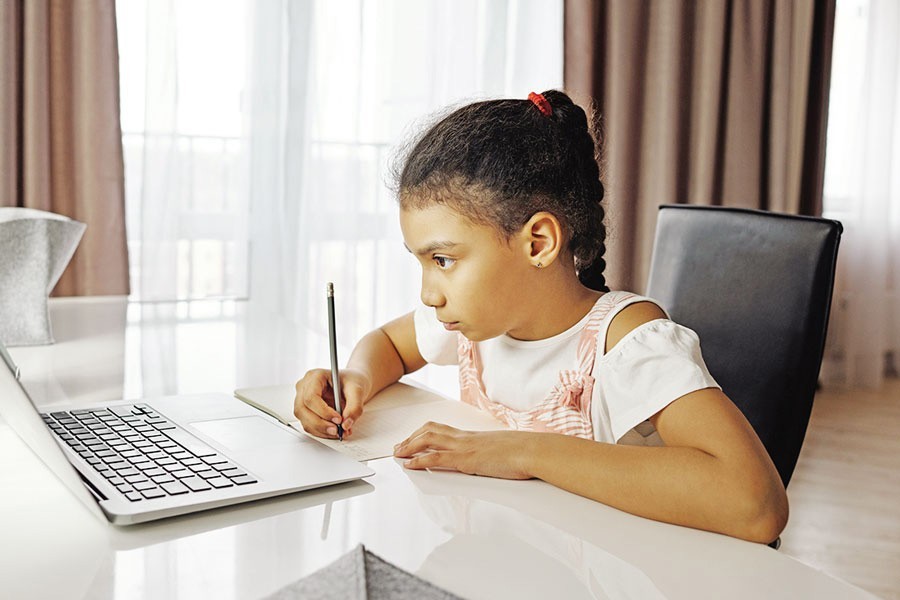Inadequate preparedness for offering online and TV-based education has created fear of loss of learning of an entire generation as the government has once again suspended in-person classes to stem the risk of Omicron surge.
Stakeholders said the online classes have failed to serve the students properly although the method is considered the mainstay of education during the pandemic.
Only one-fifth (21 per cent) of the Bangladeshi students have access to internet or online-based education, according to a study by a group of global and local NGOs and rights groups. It found that less than half (48 per cent) of them can watch television.
A Directorate of Secondary and Higher Education report published this month mentioned that as much as 57 per cent students did not join online classes and 79 per cent did not participate in TV classes during the pandemic.
Experts have listed poor access to digital devices, low internet speed, costly internet packages and lack of preparations of the authorities as major obstacles to online and blended education in the country.
“Digital devices and connectivity for accessing online education remain a major challenge and we could have taken necessary measures in the last one year but we didn’t see much changes. The country’s school education is in disarray,” Dr Manzoor Ahmed, Professor Emeritus at BRAC University, told The Financial Express.
He felt that the authorities took ‘lightly’ the online and blended education – an important tool for continuing learning during the pandemic – at the implementation phase.
“A generation is now becoming the victim of learning losses. It’s essential to address the situation immediately,” the expert added.
An estimated 42 million children have become a casualty of Covid-induced school closure in Bangladesh, according to the latest UNICEF report. The situation leaves little option for them but to rely on remote learning.
The Campaign for Popular Education (CAMPE), in a study last year, said 69.5 per cent students did not participate in distance learning due to lack of necessary devices.
Professor Md. Abdus Salam of Institute of Education and Research (IER) at Dhaka University, said their study has found that the students’ inadequate access to digital devices and poor mobile phone network are the key challenges to the blended education.
Bangladesh has ranked 103rd among the 110 countries, according to the Digital Quality of Life index-2021.
“For digital devices, poverty is a problem. The government could take a project to provide digital devices as it provides textbooks to students,” he suggested.
Professor Manzoor Ahmed recommended that the government should take immediate steps to improve online and TV learning through broader consultation with the stakeholders including mobile phone companies and NGOs.
Experts also regret national failure to raise education budget to 20 per cent of the annual outlay from 10-12 per cent at present in line with the global goal to attain literacy and quality education.
When contacted, Director (Secondary Wing) at Directorate of Secondary and Higher Education Mohammad Belal Hossain said the government is working closely to improve the situation and is well-prepared to run online learning during the pandemic.
The official is confident that the education ministry can expand online learning this time around.
“The education ministry has already directed all the field-level officials to be prepared for a blended learning approach and implement it across the country,” he added.
“The education ministry is working with all the stakeholders to ensure access of students to smart devices, IT support, and financial aid,” he mentioned.


